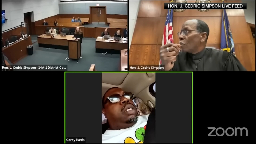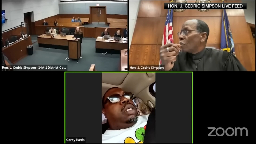Man with suspended license appears in Michigan court over Zoom while driving
Man with suspended license appears in Michigan court over Zoom while driving

abc7.com
Man with suspended license appears in Michigan court over Zoom while driving

cross-posted from: https://lemmy.world/post/15976653
Man with suspended license appears in Michigan court over Zoom while driving


